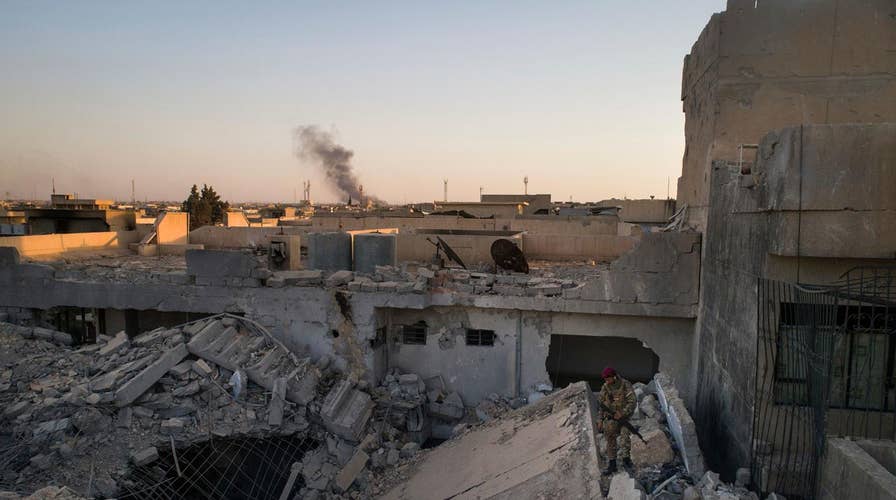The end game is near for ISIS and its Caliphate in Iraq and Syria and President Assad of Syria continues to slaughter civilians. But what is the plan for ruling the areas they devastated? How about letting them have self-determination.
The existing nation states of Iraq and Syria have failed and fragmented. The people in the regions ISIS once controlled are highly skilled at insurgency, and harbor tremendous dislike of their respective central governments. It is unlikely they can be forcefully reintegrated into either country, and it would be unjust to make them do so.
Like much of the post-colonial world, the borders and states of Iraq and Syria were arbitrarily formed. This was done more for the convenience of the powers that previously controlled them, the British and French in this case, than for the good of the people who live there. There is no reason those current borders should remain if they are actually obstacles to peace and stability in the region.
The areas ISIS formerly controlled are populated mostly by Sunni who have been poorly treated by the governments of Iraq and Syria. This was one of the reasons for ISIS support from some in those regions. The central government of Iraq is dominated by the Shia majority which is closely aligned with Iran. There is no love lost between the two and for Baghdad to rule there now it would require an iron sandal on the necks of the populace. The same dynamic is in play with the Assad regime and its Sunni citizens.
So why do that? Let’s stop trying to force groups that hate each other to coexist in states that have no legitimate rationale for their existing borders. ISIS effectively erased the border between Iraq and Syria when it formed the Islamic State straddling it. We have an opportunity to take a fresh look at the entire region and come up with a better way for the people there to control their own destinies. Security Studies Group has just released a plan to do just this called Iraq and Syria after ISIS and Assad.
The Sunni regions are devastated by the horrors ISIS brought, and many of the tribal leaders who would normally run things there were slaughtered. An internationally sanctioned protectorate for those regions in Iraq and Syria would give them time to rebuild the civil society that was destroyed. The US could partner with the Gulf Cooperation Council to provide peacekeepers and some resources to rebuild. Then, after enough time has passed, the citizens of this region can vote on whether they want to rejoin Iraq and Syria or form their own state or states.
The Kurds present another reason why an eventual partition to allow self-determination in the region makes sense. The Kurdish Regional Government (KRG) runs a nation state in basically every way short of international recognition. They have scheduled a vote on independence from Iraq for September 25th. The United States must decide whether to support them, or turn our backs on the only real allies we have in the current mess. We should absolutely support them as they have supported us in the fight against ISIS.
The Assad regime must also be removed from power in Syria. Assad’s crimes are too many to count or tolerate and there can be no legitimate peace unless he goes. This will likely require a compromise where the Russians can effectively replace him to maintain their partnership and their warm water port in Tartus. All the same, the removal of Assad will be a powerful symbol of the international community’s refusal to accept nations that commit war crimes against their own people.
This is an audacious plan to let the people who live there remake the region, but can anyone say the current situation has been the slightest bit successful? If the United States says we want this and President Trump puts his deal-making skills to work, this path has a better chance to succeed than doubling down on failures of the past.

